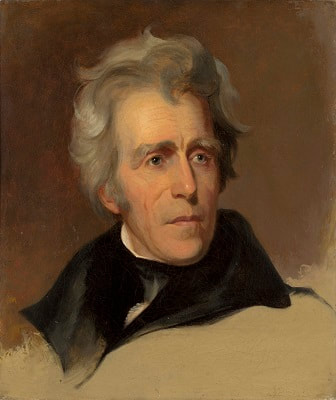American Civilization | The Road to The American Civil War
Part Three | The Second Party System and the rise of Sectionalism
|
Since the 1830s, the Democratic Party and the Whig Party had been the two main political parties in the United States. Andrew Jackson was elected President in 1828 and created the Democratic Party. A growing movement of opposition to Jackson coalesced into a new political party - the Whigs. Democrats favoured States’ rights and opposed federal government intervention. By contrast, Whigs advocated for fast economic growth and endorsed federal government intervention in the economy.
|
Contenu reservé aux membres | Member Only ContentConnectez-vous pour lire la suite | Sign in to read more
|
If you are already logged in, please scroll down. | Si vous êtes déjà connecté, veuillez descendre.
|
|
|
Major difference between Whigs and Democrats
Whigs |
Democrats |
• Formed in 1834 by opponents to President Andrew Jackson and his Jacksonian Democrats. |
• Created by Andrew Jackson in 1828 when he was elected President. |
• Favoured a stronger federal government |
• Favoured a weaker federal government. |
• Advocated for internal improvements, protective tariffs and a national banking system |
• Against internal improvements, protective tariffs and a national banking system. |
• Drew most support from New England and the Mid-Atlantic states. |
• Drew most support from southern and western states. Especially from pro-slavery advocates. |
• Endorsed by protestants of English heritage, easter bankers, merchants, industrialists, large plantation owners. |
• Endorsed by small farmers and planters, debtors, slaveholders, pioneers, Catholics and immigrants. |
• Favoured stronger legislative power (Congress) and weaker executive power (President). |
• Favoured stronger presidential power and weaker legislative power (Congress). |
• Preferred Congressional dominance in lawmaking |
• Presented themselves as the defenders of the "common man" against the elite. |
• Promoted industrialisation, urbanisation and modernisation |
• Promoted the Jeffersonian concept of an agrarian society. |
• Opposed to Manifest Destiny and favoured gradual westward expansion. |
• Believed in Manifest Destiny and promoted rapid westward expansion. |
• Defenders of Native Americans. |
• Promoted and signed the Indian Removal Act. |
Both parties were divided over the issue of slavery.
Whigs were generally against the rapid westward territorial expansion. In an 1843 letter, Whig leader Henry Clay stated, “It is much more important that we united, harmonise, and improve what we have than attempt to acquire more”. The Democratic Party, conversely, tended to encourage westward expansion as embodied in the doctrine of “manifest destiny”. They presented themselves as the defenders of the ‘common man’, and painted Whigs as the party of the aristocracy.
Even though many abolitionists had more in common with the Whig Party than the Democratic Party, the Whig Party did not adopt a firm stance on slavery. Whigs were not formally an anti-slavery party. Jacksonian Democrats were pro-slavery and drew much of their support from the southern states. Andrew Jackson was a vocal proponent/advocate of slavery and described it as a “positive good”. He personally owned more than 160 slaves.

